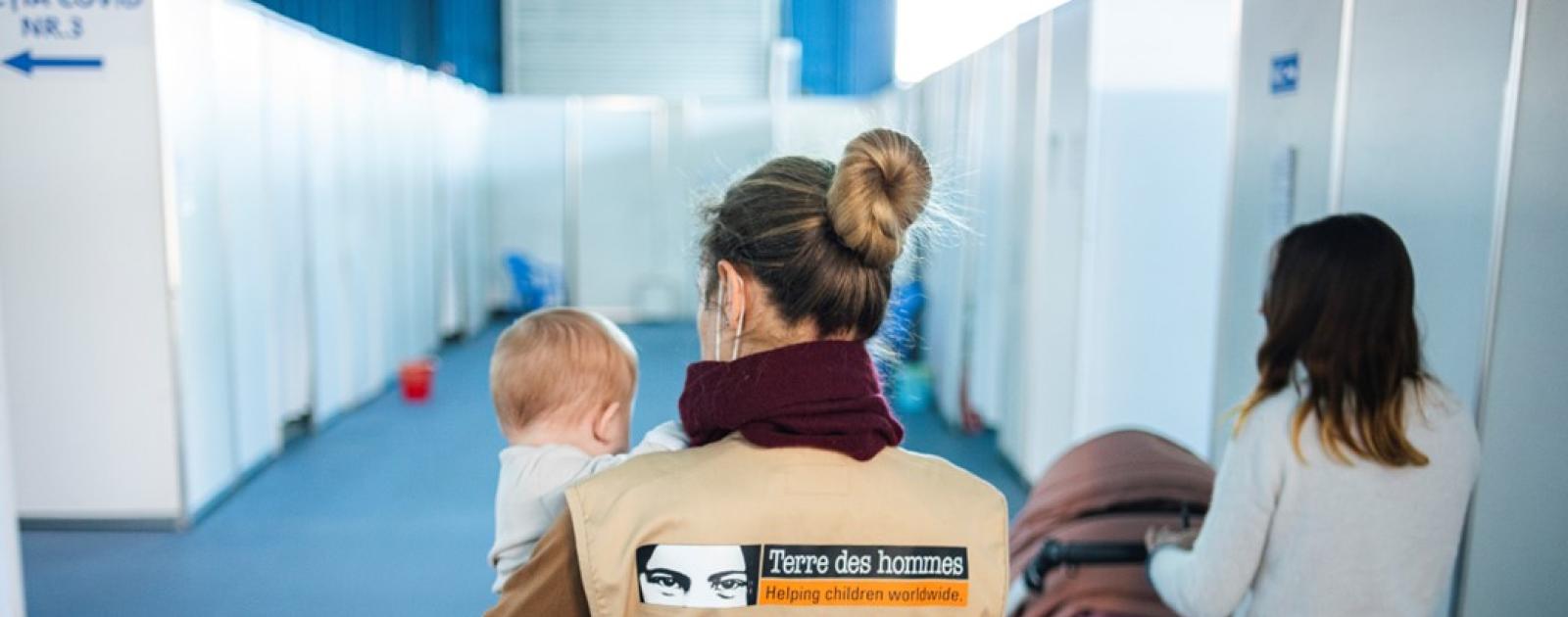
Today marks one year since Russia attacked Ukraine, ending decades of peace on the continent. More than seven thousand civilians, among them 500-1000 children were killed in the fighting. The country has 5.7 million school-age children missing out on education, while two million minors have been displaced. Some five hundred of these children, aged 5-11, are being cared for in Hungary by the Terre des hommes Foundation, the regional headquarters of the Swiss child protection organisation Terre des hommes, a UNICEF-supported emergency programme.
The fighting in Ukraine has so far damaged 1,218 health facilities, including 540 hospitals, and completely destroyed 173. An estimated 5.7 million school-age children are missing out on education, including 3.6 million due to the closure of educational institutions. According to the UN Children's Fund, more than 17.7 million people in the country are in need of urgent humanitarian assistance. The Human Rights Council warns that since the beginning of the war, both women and men have been victims of severe violence: the official number of sexual assaults on women is over 150, but the real number may be significantly higher, and torture of men in detention is common. The number of internally displaced persons fleeing the war has reached 6 million, and since 24 February last year, 8 million more people have been forced to flee their homes. Some two million of them are under the age of 18.
"In the absence of official government data, the exact number of Ukrainian refugees currently in Hungary is unknown. According to official UNHCR figures, more than 2.2 million people have crossed the Ukrainian-Hungarian border in the past year, with more than 34,000 people under temporary protection," said Balázs Lehel, head of the Budapest office of Terre des hommes.
Terre des hommes, supported by UNICEF, has so far assisted 969 refugees, including around 500 children aged 5-11, in its emergency programme. A total of 1 053 psychosocial consultations (877 individual sessions, 176 group sessions) were provided by 9 psychologists in two shelters in Budapest and one in Pilisszántó, as well as in a non-formal education centre in Budapest offering education and community experience to Ukrainian-speaking children.
"I learned that it is never too late to learn"
Since the programme started last year, a multidisciplinary team of 6 people, usually consisting of a team leader, a social worker, a psychologist and an animator, has been following the needs of children, young people and families living in temporary accommodation (transit centres, local communities) and coming into contact with them in other ways.
Children and young people who are refugees or temporarily staying in our country face different challenges and difficulties, which require a varied and regularly changing response according to their needs and requirements, from after-school catch-up sessions to financial awareness for parents, administrative, housing and health assistance. Feedback from the refugees concerned suggests that supporting their psychosocial situation, physical and mental health, general well-being and ensuring their adequate protection through social work, administrative support, non-food donations and vouchers, education, psychological first aid and psychosocial support is important but not sufficient in a situation that has lasted for a year.
At this time last year, a number of grassroots NGOs and service providers began immediate assistance, which was then able to continue with the support of serious, typically international professional organisations, and whose survival is based on these partnerships today. The support provided by the major actors (IOM, UNICEF, etc.) to local actors who understand and know the local context, after the initial crisis intervention (shelter, food, health care, information), must now also focus on integration (access to housing, education, employment, legal status, etc.): the shift in emphasis from emergency to support for longer-term objectives is taking place in parallel and continuously without transition. The needs of families displaced by the war, which has been going on for a year now, are constantly changing, and the organisations working for and with them are accordingly increasingly focusing on the needs of families who are staying longer.
For organisations working in solidarity with displaced families, in addition to immediate crisis intervention, finding and implementing the best responses to complex social issues is an important part of their daily work - as it was a year ago, it is still largely based on their own individual initiatives.